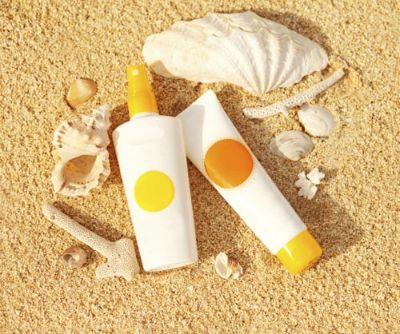What exactly is SPF and is this an interchangeable word for “sunscreen”?
Dr. Elizabeth K. Hale: SPF stands for “Sun Protection Factor,” which is the ability for a sunscreen to block UVB rays. It indicates the approximate amount of time you are able to remain in the sun without getting burned.
SPF only accounts for protection against UVB rays and not UVA rays.
What’s the formula for figuring out how long an SPF number lasts, or how high of a number you should be looking for?
The SPF numbers themselves are a measurement of time. For example, wearing a sunscreen with an SPF of 30 would allow you to stay in the sun 30 times longer without burning than if you were to wear no protection.
For every day sun protection, be sure to apply a broad spectrum sunscreen with a SPF 30 or higher, both on your face and body. I recommend sunscreens that are extremely lightweight and won’t clog pores or cause breakouts.
Make sure to apply generously and often, as reapplication is key. You should reapply sunscreen every two hours and after swimming, sweating, or towel drying.
What’s the difference between waterproof and water resistant?
In 2011, the FDA mandated that no sunscreen is “waterproof.” The organization considers a product “water-resistant” if it maintains the same level of SPF protection after 40 or 80 minutes of water exposure.
However, a person playing volleyball needs to reapply sunscreen more often because his or her level of increased activity means more sweat.
Do certain SPF numbers work better for certain occasions (i.e. sitting outside vs. playing beach volleyball and sweating)?
The SPF will “work” the same; the longevity of protection will vary according to the SPF number and rigor of activity.
For instance, a person sweating and playing beach volleyball wearing SPF 50 will get the same protection as someone sitting by the pool wearing SPF 50.
Is there an SPF number cut off for how effective it is? (i.e. SPF 80)
The difference in protection between an SPF 30, 50, 70 and 100 is incremental. However, many of my patients prefer a higher SPF due to skin sensitivities or other needs. No sunscreen provides 100% protection against the sun’s UV rays.
The best way to make sure you are adequately protected all day is by reapplying at least every two hours, no matter how high the SPF is.
Source: www.beautyhigh.com





